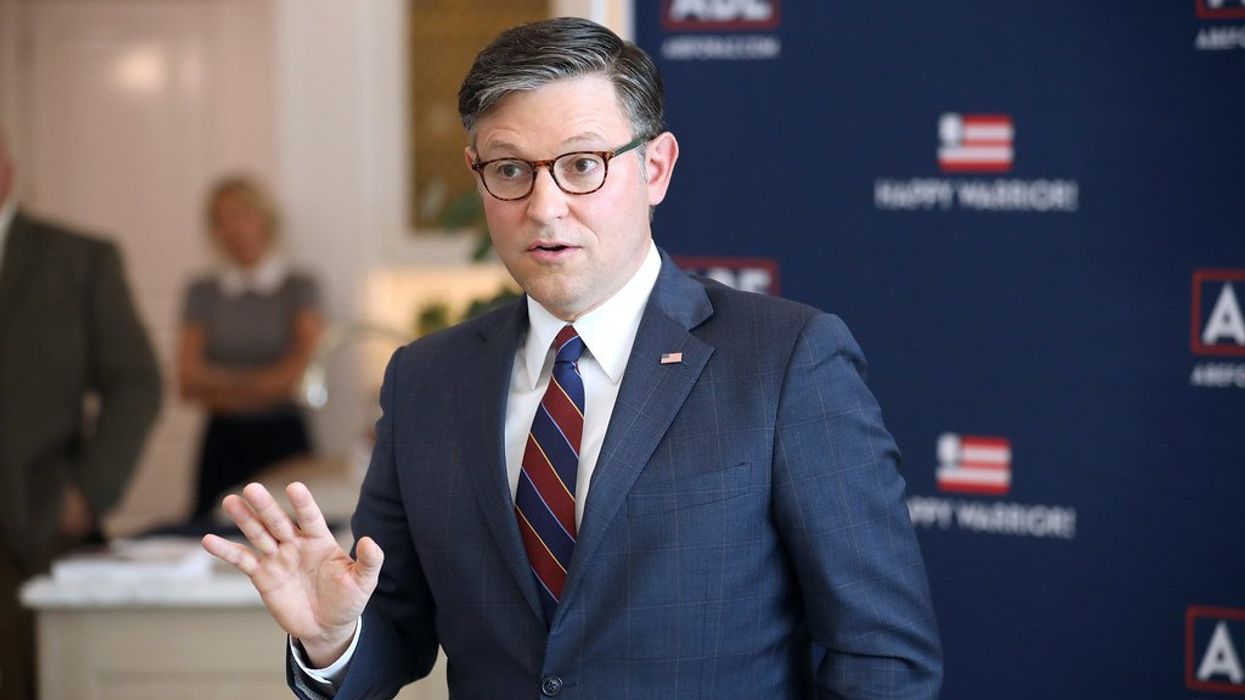Republicans scrambling to save Trump's big bill after major provision ruled improper

House Speaker Mike Johnson (R-La.) Image via Gage Skidmore/Flickr.
House Speaker Mike Johnson (R-La.) Image via Gage Skidmore/Flickr.

House Speaker Mike Johnson (R-La.) Image via Gage Skidmore/Flickr.
Editor's note: This headline has been updated.
The Senate parliamentarian ruled last week that a GOP proposal to shift a portion of Supplemental Nutrition Assistance Program (SNAP, or food stamps) costs to states violates the chamber’s Byrd rule, forcing Republicans to revise the measure.
Following the decision, which came after a bipartisan meeting with Senate Agriculture Committee staff, GOP lawmakers are now amending President Donald Trump's "Big, Beautiful Bill" to give states more time between receiving payment data and when they must begin contributing to SNAP, Senate Agriculture Chair John Boozman (R-Ark.) said Monday, per a report by Politico.
Currently, the U.S. Department of Agriculture releases states’ payment error rates each June. The Politico report notes that under the original version of the legislation, states would have been required to begin sharing costs just four months later, in October 2028.
READ MORE: Florida enacts law allowing the super-rich — including Ivanka Trump — dodge $10 million fee
Republicans are adjusting the timeline in hopes of bringing the proposal into compliance with Senate rules, per the report.
But they won’t know for certain whether the changes pass procedural muster until the parliamentarian reviews the updated text. That decision isn’t expected before Tuesday, as the parliamentarian remains tied up with matters related to the Finance title of the bill, according to the report.
Earlier this month, Sen. Tommy Tuberville (R-Ala.) — who is now running for governor of Alabama — also publicly voiced his reservations about the proposed measure.
Traditionally, the federal government has covered the entire cost of food stamps, but the Republican-backed budget legislation would require states to shoulder a portion of those expenses for the first time.
READ MORE: 'Who is running the show?' Trump's sudden disappearance from public view sparks questions
“Everybody that’s going to be in state government is going to be concerned about it,” Tuberville told Politico at the time. “I don’t know whether we can afford it or not.”
Although Tuberville has endorsed the bill’s proposed tougher work requirements for SNAP recipients, his home state of Alabama — ranked the eighth-poorest in the nation by U.S. News & World Report — could face steep and unforeseen financial obligations if the One Big Beautiful Bill Act is enacted along with that provision.